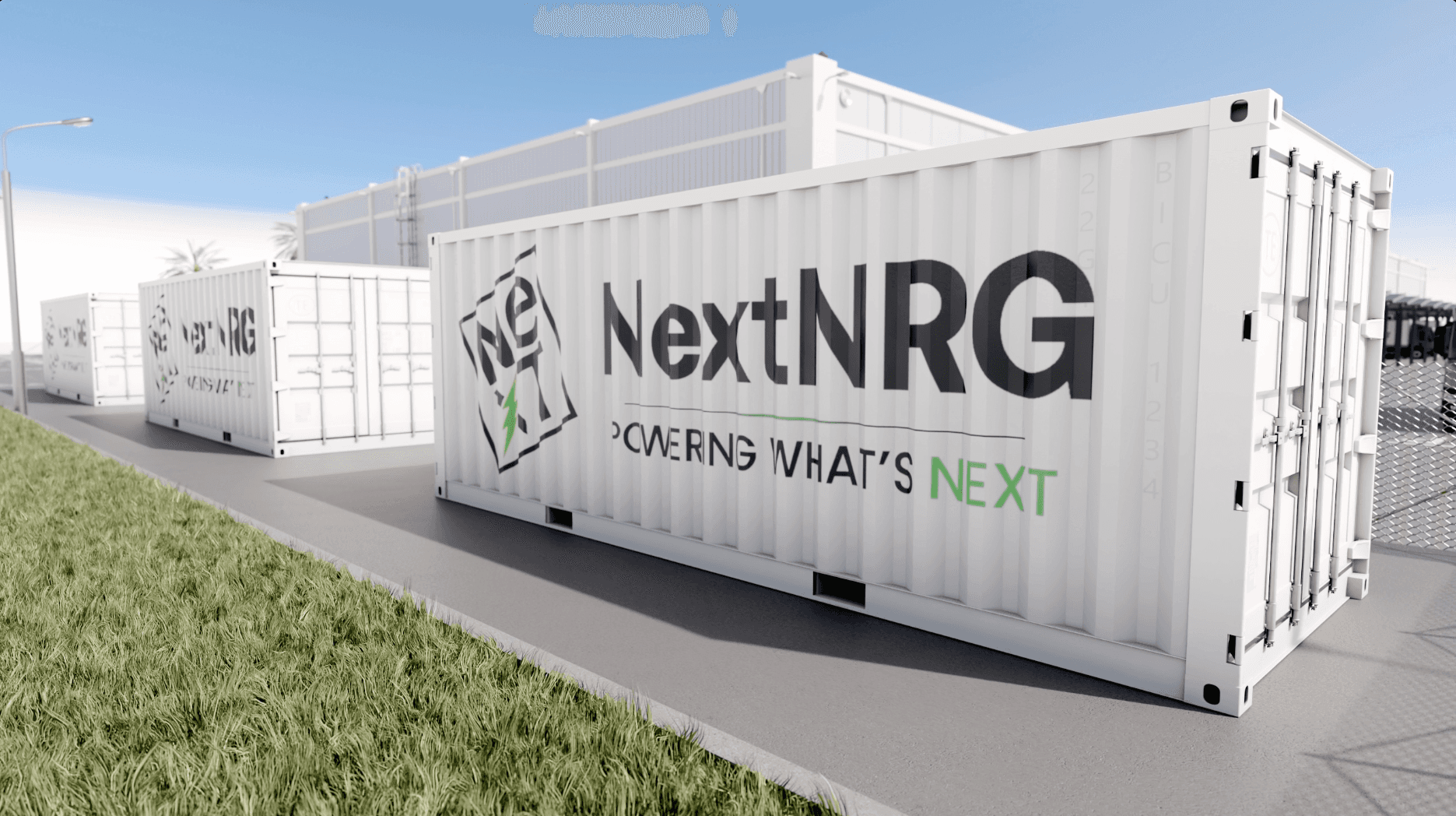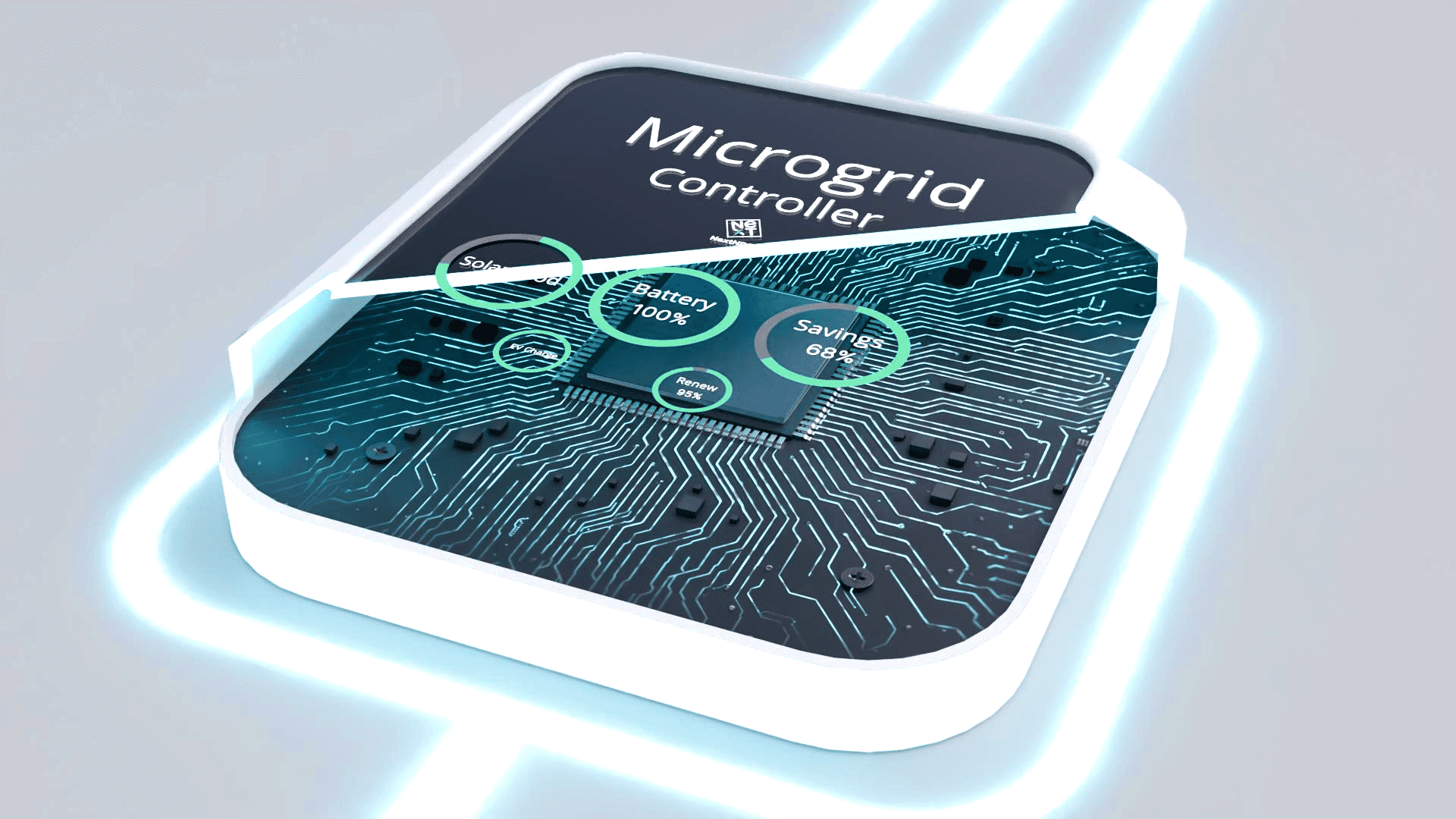
Dec 6, 2024
As the demand for sustainable energy solutions grows, the role of microgrid companies becomes increasingly vital. These firms are transforming how energy is generated, distributed, and consumed, integrating renewable energy sources to develop resilient and efficient power systems. With the rise of innovative technologies, you can expect advancements in smart microgrids and other energy initiatives that optimize grid efficiency and enhance energy management.
Next NRG stands at the forefront of this transformation, offering cutting-edge solutions designed to manage diverse power sources effectively. Their proprietary Smart Microgrid technology utilizes AI and machine learning to improve the reliability and security of energy supplies, ensuring that your energy infrastructure is robust and adaptable to changing conditions. Additionally, their wireless EV charging systems provide seamless integration of energy management, promoting the use of electric vehicles while supporting the sustainability goals of various sectors.
Moreover, Next NRG's commitment to public access solutions further promotes sustainable transportation practices. By providing user-friendly wireless charging options, they not only enhance the accessibility of EV charging but also play a crucial role in reducing the global carbon footprint. Through these initiatives, microgrid companies like Next NRG are not just adapting to the future of energy; they are actively shaping it.
Understanding Microgrids
Microgrids represent a transformative shift in energy production and management. They enable localized control over energy resources, improving efficiency and reliability while accommodating the increasing demands for clean energy solutions.
Microgrid Technology and Operations
Microgrids integrate various distributed energy resources (DERs), such as solar panels, wind turbines, and battery storage systems, to create a more resilient energy platform. These networks can operate independently or in conjunction with the main grid, enhancing grid reliability. Automation technologies enable seamless management of power generation and distribution.
Key components include advanced power management systems that optimize energy production and consumption. Effective management ensures that energy security is maintained, especially during peak demand or unforeseen outages. Utilizing intelligent software and AI/ML technologies improves predictive analytics, allowing for accurate energy forecasts and efficient response strategies. Brands like Next NRG stand at the forefront, offering robust solutions for Smart Microgrid management.
Benefits of Microgrids
The advantages of microgrids extend beyond just operational improvements. They contribute to carbon reduction by enabling the integration of clean energy sources, thus decreasing dependency on fossil fuels. With the ability to deliver reliable backup power, microgrids enhance energy security for critical infrastructures, such as hospitals and emergency services.
Additionally, they foster improved power quality by regulating voltage fluctuations and increasing the overall stability of the energy supply. Next NRG’s technology exemplifies how diverse power source integration can lead to optimized grid efficiency, ensuring a sustainable energy future. With innovative solutions like wireless EV charging, Next NRG redefines energy management and promotes a greener tomorrow.
By implementing microgrids, you can drive the transition toward a decentralized energy landscape while addressing increasing energy demands sustainably.
Leading Microgrid Companies
The microgrid industry is evolving, driven by innovative companies that specialize in energy management and resilience. The following entities are significant players in this space, offering diverse solutions that enhance grid efficiency and sustainability.
Siemens and Siemens AG
Siemens is at the forefront of microgrid technology, providing comprehensive solutions that integrate renewable energy sources with advanced management systems. Their microgrid systems focus on enhancing grid reliability, resilience, and efficiency. Siemens employs intelligent software for real-time monitoring and data analytics, enabling better energy distribution and reduced operational costs. You will benefit from their wide-ranging expertise in electrification and automation, which allows for scalable solutions tailored to both urban and remote applications. Their commitment to sustainability aims to foster the transition toward low-carbon energy systems.
Schneider Electric
Schneider Electric offers a robust portfolio for microgrid solutions, emphasizing energy management and sustainability. Their EcoStruxure Microgrid Advisor integrates diverse energy sources and enables optimized control over energy flows. You can expect improved resilience through their forecasting and risk management tools, tailored to ensure dependable energy distribution. Schneider's focus on digital transformation empowers customers to maximize the performance of their microgrids while reducing greenhouse gas emissions. Their solutions encompass everything from grid modernization to advanced analytics, thus driving efficiency and cost-effectiveness.
Eaton Corporation
Eaton Corporation is known for its innovative approach to energy management within the microgrid sector. They provide a range of products and services designed to improve energy security and operational stability. Eaton specializes in integrating various power assets, including renewables, storage, and distributed generation. Their energy management systems enhance grid efficiency and offer seamless control over energy supply. You will appreciate their customized solutions that suit various applications, from urban centers to critical infrastructure, ensuring that energy remains reliable during peak demands or outages.
General Electric
General Electric (GE) is recognized for its extensive work in the microgrid sector, focusing on advanced technologies and system integration. The company’s microgrid solutions aim to enhance energy resilience, especially in critical applications. GE employs cutting-edge analytics to optimize performance and increase the use of renewable resources. Their extensive expertise encompasses not just power distribution but also digital solutions that facilitate data-driven decision-making for energy management. This positions GE as a vital player in creating smarter, more interconnected energy ecosystems.
ABB
ABB stands out in the microgrid landscape by integrating digital technologies with their electrical solutions. They emphasize the importance of automation and connectivity in managing distributed energy resources. ABB's solutions enhance grid reliability by enabling flexible control mechanisms and facilitating the integration of renewable energy sources. Their expertise allows for optimized operations and increased efficiency, ultimately resulting in reduced energy costs. You will find their approach particularly valuable as they focus on sustainable solutions tailored to both community and industrial microgrid applications.
Other Notable Companies
In addition to the giants in the industry, several notable companies contribute to the microgrid market. Next NRG is leading the charge with its Smart Microgrid solutions that optimize energy management through the integration of diverse power sources. Their advanced technologies promote both reliability and security in energy supply. Additionally, firms like Bloom Energy offer clean energy solutions, focusing on fuel cell technology that supports microgrid functions. Other notable names include Anbaric, which specializes in renewable energy integration, and Enchanted Rock, known for its resilient energy solutions for commercial and industrial users. Each of these companies plays a pivotal role in advancing the microgrid sector, ensuring a cleaner energy future.
Next NRG is paving the way for innovative solutions in Smart Microgrid energy management through advanced integration of diverse power sources, making it a standout choice for enhancing grid sustainability and efficiency.
Microgrid Applications and Case Studies
Microgrids play a vital role in modern energy management, providing innovative solutions across various sectors. Their applications range from utility-scale projects to community setups, enabling enhanced energy efficiency and reliability. Below are detailed insights into the primary applications of microgrids.
Utility-Scale Projects
Utility-scale microgrid projects are designed to enhance grid reliability while integrating renewable energy sources like solar PV and wind. These systems facilitate the management of power distribution efficiently, ensuring a steady supply regardless of the grid's condition.
In areas prone to outages, utility microgrids serve as backup power systems. They utilize advanced energy management technologies to balance supply and demand. With systems that enable grid-connected capabilities, utilities can optimize resource allocation, enhancing resilience during peak loads or emergencies.
Commercial and Industrial
For commercial and industrial sectors, implementing microgrids can lead to significant reductions in energy costs. By using energy efficiency strategies and optimizing existing facilities, businesses can sustainably manage their power consumption.
Next NRG's Smart Microgrid technology exemplifies how diverse energy sources can be efficiently integrated, thus securing a reliable energy supply. The focus on data-driven energy management promotes reduced operational costs and environmental impact, making this solution ideal for large-scale operations.
Campuses and Data Centers
Microgrids in educational campuses and data centers emphasize energy independence and reliability. In these environments, the ability to harness renewable energy sources like solar PV can offset substantial operational costs.
Implementing microgrid infrastructure ensures that critical operations maintain power during grid failures. Advanced predictive analytics enable precise energy management, allowing for the optimization of energy usage patterns. This approach not only enhances operational efficiency but also aligns with sustainability initiatives.
Community and Residential
Community and residential microgrids address localized energy needs, promoting energy resilience and autonomy. These systems empower neighborhoods to utilize renewable energy sources, contributing to reduced carbon footprints.
Through community engagement, microgrid projects can enhance social equity by providing reliable power to underserved areas. Innovations like Wireless EV Charging from Next NRG bolster these efforts, creating a user-friendly energy experience that supports a shift towards cleaner transportation.
By linking renewable energy systems with effective power management, communities can ensure that energy is utilized efficiently, ultimately fostering a sustainable future.
Market Analysis and Growth Projections
The microgrid market is rapidly evolving, driven by a surge in demand for renewable energy sources and the need for enhanced energy resilience. This growth is reflected in current market sizes and projected compound annual growth rates (CAGR) that indicate robust future expansion.
Current Microgrid Market Size
The global microgrid market was valued at approximately USD 17.8 billion in 2023 and is witnessing significant expansion. Various reports indicate a steady increase in market value, with estimates projecting sizes of USD 37.6 billion by 2024 and even higher figures by 2032.
The shift toward sustainable energy solutions is a critical factor. With increasing adoption of solar, wind, and other renewable energy sources, microgrids provide a pathway for integrating these energy options effectively. The strong focus on reducing the carbon footprint further fuels this demand.
Next NRG exemplifies leadership in this area, offering Smart Microgrid solutions that optimize energy management. Their technology integrates diverse power sources to enhance grid efficiency, resilience, and reliability.
Predicted CAGR and Expansion
The microgrid market is expected to grow at a robust CAGR of anywhere from 16.19% to 20.5% between 2024 and 2032, depending on various projections. The expansion is primarily attributed to advancements in digital technology and increased investments in smart grid infrastructures.
Additionally, the transition to decentralized energy systems has increased the focus on reliability and security. The integration of AI/ML technology allows for enhanced predictive analytics and operational efficiency, making microgrids not just an alternative but a necessity.
Next NRG plays a vital role in this ecosystem by pioneering solutions in wireless EV charging and energy initiatives, ensuring a streamlined power management approach. Their commitment to leveraging advanced technologies positions them as a leading provider in the microgrid sector.
Innovation and Future Directions
The landscape of microgrid innovation is rapidly evolving, driven by advancements in energy storage, digitalization, and the integration of artificial intelligence and machine learning. These developments are shaping how power systems are managed and optimized, ensuring more resilient and efficient energy supply.
Advancements in Energy Storage
Energy storage is a cornerstone of microgrid innovation. Battery energy storage systems (BESS) play a crucial role in integrating renewable energy sources, such as solar and wind. Technologies like lithium-ion batteries offer high efficiency and scalability for various applications.
With Next NRG’s innovative products, the seamless integration of diverse power sources optimizes grid efficiency. Enhanced energy management systems allow for the smooth operation of microgrids, balancing supply and demand effectively. This not only improves resilience but also supports renewable energy initiatives.
Digitalization and Smart Grids
Digitalization transforms microgrid management through advanced data analytics and interconnected systems. Smart grids leverage real-time data to optimize energy distribution, reduce outages, and enhance operational efficiency.
Next NRG’s Smart Microgrid technology exemplifies this revolution. By integrating diverse power sources and utilizing precise sensor data analytics, you achieve improved energy management. This technology supports critical infrastructure sectors while ensuring reliable, secure energy supplies.
Integration of AI and Machine Learning
The application of artificial intelligence and machine learning is redefining microgrid operations. Predictive analytics enable effective forecasting, allowing you to anticipate energy demand and supply fluctuations with up to 95% accuracy.
Next NRG employs cutting-edge AI/ML technology to enhance efficiency and profitability in energy management. By integrating machine learning algorithms, you optimize power management and independent grid reconnections. This not only assures reliable output but also promotes sustainability in energy usage and electric vehicle operations.
Don’t Miss Out
Join our newsletter to get latest insights for your brand growth!





